Innovation or Hype? AI’s Push to Take Over Your Living Room
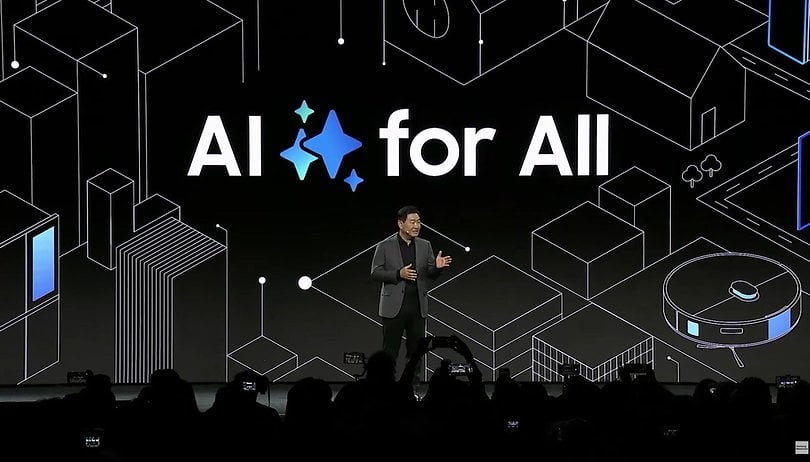

As always, CES 2025 is the event to kick-off the tech year, and this year, one topic dominates all others: Artificial Intelligence (AI). It seems no product can make do without AI anymore, and if companies like Samsung or LG (and many others) have their way, we will reach new heights in 2025: AI will move into the living room, making its mark in the smart home. However, is that really the case? Are we just seeing a big buzzword and marketing hype show in Las Vegas? Let's talk about it!
Gimmick or Real Added Value? The AI Smart Home Hype at CES 2025
It sounds like a dream come true for technology fans: a home that understands us, anticipates our wishes and seamlessly simplifies our everyday lives. Tech companies have been promising us this dream for years. At CES 2025 in Las Vegas, companies such as LG and Samsung are now taking smart homes to the next level—with artificial intelligence at the center, of course. However, is this hype justified? Do the new products really offer any tangible added value to our homes, or will AI remain a gimmick for now?
From smart lighting that automatically adjusts itself to our mood, to televisions that analyze our viewing habits, smart mirrors that screen our health, refrigerators that make food suggestions—the vision of an intelligent home sounds enticing. At CES 2025, manufacturers are outdoing each other with technologies designed to make our lives more comfortable and efficient. Upon closer inspection, I found myself asking other questions: How much of these are actually groundbreaking? How much of it do I really need or want? What compromises do I have to make, for instance, in terms of data privacy? Will I see global innovations at CES or just products that can only be used on a very limited regional basis for now?
Have we finally arrived in the future?
More than ten years ago, I enjoyed watching "This is how it's going to be" videos from various manufacturers immensely. The "A Day Made of Glass" series from Corning immediately springs to mind, but Samsung and the ilk also had clips like this.
If I were to correctly remember, such concept videos often had one thing in common: they take us through a “typical” day and explicitly show us where technology enhances our day by making it more convenient. This is still the case today! This was evident at Samsung and LG's CES press events. I am woken up in a 'smart' manner, where my favorite coffee brew on the kitchen counter is already ready. Whether I am still in bed or in the kitchen, I am briefed on the appointments coming up for the day. When I leave the house, AI will remind me of the weather and suggest I pack an umbrella.
These scenarios run through the entire day, and you inevitably come to realize this: Yes, if it all works like this, then it's an astonishing story. The only question I ask myself is: have we finally reached the point where all these technical gadgets are so good and ready for mass production and such visions are finally being realized? Or is the hype surrounding AI just another opportunity to fool us into believing that our houses and apartments are now really becoming smart?
Many of the products on show in Las Vegas are updates of existing technologies. The smart fridge is not a new concept at all, and we can get personalized movie recommendations without having a TV to analyze us. What I also often miss here is the real added value that we feel in everyday life. Do I need a washing machine that uses an app to suggest the best wash cycle? Do I want technology in the nursery to recognize that the baby's diaper is full?
Hurdles on the Way to an AI-supported Smart Home
Let's be a little more specific now. My Samsung TV has learned a new trick: just as we are familiar with the generative AI backgrounds of Galaxy AI on compatible Samsung smartphones, I can also create these backgrounds on the TV. Thanks to "8K AI Upscaling Pro", AI can also upscale low-resolution images (in a very impressive manner) and ensure even a fast-moving ball is displayed sharply in a tennis or soccer game. However, is that enough of an argument to drop a few thousand dollars on a new TV?
With “Home AI”, Samsung finally arrived in the AI-supported smart home scene. Home AI ensures all devices in the smart home are even more closely interlinked, everything is even more personalized and more convenient to use. Bixby will also become smarter, Knox more secure, etc. Personally, I don't see an AI frontal attack on the smart home, but rather a "yup, everything's getting a bit smarter". That's nice, but none of this made my jaw drop during Samsung's CES keynote.
I also sat through LG's keynote. The presentation on how various devices communicate with each other reminded me a little of a sitcom where everyone was chatting wildly. Regardless of this, I had the feeling Samsung and LG have very similar plans for how AI should control our smart homes. In the example that was given in the LG keynote, we saw how LG AI ensured that the humidifier automatically switched itself off if it has begun to rain during the day. Is that practical? Yes! A game changer? No!
More excitedly, the real eye-catchers at the two press events were cute little robots, which perhaps visualized this paradigm shift towards the AI smart home in the most obvious manner: There is no longer a smart speaker standing somewhere in the room. Instead, a cute robot scurries around your legs. If you are there, it takes over all the jobs that any other smart home control center can do: turn on the lights on command, turn down the heating, and a whole host of other actions.
If you are not at home, the little boxes patrol the entire place, monitor the apartment or house, and send photos if the dog has knocked something over—again. Ideally, the robot can then directly instruct the robot vacuum cleaner to clean up the mess.
That's adorable and yes, also useful. All these bring us back to what I wrote above: it's always being announced and optimized, but no real progress is made. In this case, we already know of both robots from previous events. The LG Q9 already made its first rounds at CES 2024. We also know about Samsung's Ballie from CES 2024, but an earlier version even debuted in 2020, as you can view in the following video:
"Ballie" has now become even smarter, also doubles up as a projector, and is still cute as a button, but is now also expanding its wings thanks to Samsung ever since it debuted at CES 2020. To be honest, this reinforced my feeling that companies are nowhere near as far along with the "AI anywhere, anytime" story as they would like to be. It seems as if they know very well that they have to offer something new every year, but that development is not progressing as fast as they would like.
This left me with a somewhat stale taste in my mouth and reminded me of smartphone events. After all, we have become accustomed to the fact that the buzzword-filled air is no longer heavy with the scent of excitement and innovation. Don't get me wrong, even if I'm not particularly enthusiastic about what I've seen so far at CES. This is certainly not meant to be a swan song of the idea that a good dose of AI could be good for the smart home.
The ChatGPT Effect
What do I mean by the ChatGPT effect? Allow me to explain. Do you remember when we first heard about OpenAI's AI chatbot? We were playing around with it ourselves for the very first time, magazines, and news programs surprised us with statements like: "By the way, this text was written by an AI. You wouldn't have guessed, would you?"—and we were royally amused when we caught ChatGPT giving an entirely wrong answer.
A lot has happened within a short space of time since then, as we learned how to use the platforms better. Even today, we're still cringing on an almost daily basis at the new possibilities that are opening up. I have a similar idea about the way AI is finding its way into our homes. It's great when my TV recognizes me and automatically suggests shows that I might like to watch. It's also great when AI reminds me to bring an umbrella. However, that's not the end of the story, as it's still the beginning of what's in store for us—child's play compared to what will soon be possible.
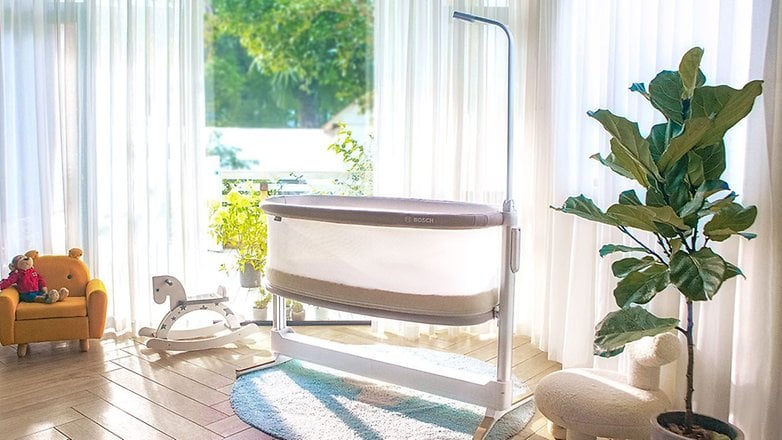
I already mentioned being alerted about a baby's full diaper above. This is made possible by sensors in the Bosch Revol crib. Perhaps this is not the most powerful function of this smart crib. Like a baby monitor, it also has a microphone and camera on board, as well as a radar sensor that can check both breathing and heart rate, and sensors for measuring humidity, air quality, and room temperature. This gadget can significantly improve sleep and health, and perhaps even save lives!
Or take the robot vacuum cleaner from Roborock, which gets rid of annoying socks thanks to its gripper arm, or the Omnia mirror concept from Withings. We are familiar with the health experts from devices such as the Withings Body Scan (review) smart scale. This mirror is conceptually linked directly to the other Withings devices and can visualize over 60 health parameters with a Withings watch, for instance.
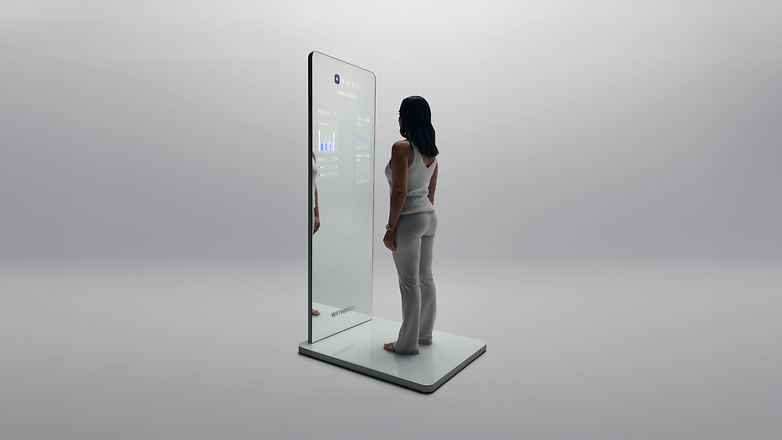
These include metrics such as blood pressure, heart rate, fat-to-muscle ratio, sleep quality, calorie consumption, vitamin levels, and much, much more. According to the concept, you even have the option of receiving telemedicine care by virtually consulting medical professionals. There is also an AI voice assistant that provides the necessary motivation to remain in good shape. This ensures that you develop an entirely different understanding of what is going on in your body.
Even though I spoke with little excitement about the keynotes from Samsung and LG, there were a few things mentioned that don't sound particularly spectacular. They will not only make our lives more pleasant in the future, but also save us real money. One example is our electricity management system, which gives us the chance to save electricity by using it at the right times.
Conclusion: A Vision of the Future or a Gimmick?
These various examples give me a clear idea of where the journey is heading. The AI hype in the smart home sector is definitely still in its infancy. Many products unveiled at CES 2025 were quite impressive to look at, but often provide little tangible benefit or represent only minimal optimizations compared to the previous year. Nevertheless, we are moving in the right direction.
We are actually familiar with this trend from the AI models on our smartphones, such as the Galaxy AI or Google Gemini: some things are really successful, others seem like gimmicks—but with many new functions, we are gradually recognizing the true potential that they will certainly soon be able to unleash.
After careful consideration, this is precisely how I see it when it comes to AI in the smart home: there is no doubt that AI is already making the smart home better today. However, we won't be able to exploit its full potential for years. Nevertheless, I wouldn't want to dismiss what was shown at the CES as marketing drivel just to somehow position oneself in the hype surrounding AI. AI repeatedly achieves the feat of amazing evolution in a very short space of time.
Don't be fooled if things are currently progressing in baby steps. As is so often the case with AI in the smart home sector: it will never be as bad as it is today! Every day, the possibilities grow and we get a better idea of where the journey can take us.
We can look forward to smart robot pets that act as an interface to your gadgets, monitor the house, inform you, and also entertain grandparents or children. You can also look forward to countless devices that save you energy and therefore money thanks to AI, or possibly save your life, or at least show you the way to a healthier life.
All these are on the way—just be patient. Until then, nextpit will be keeping an eye on things for you and will be analyzing the latest developments. We will keep you informed about the exciting innovations and skillfully ignore the marketing bullshit, or classify it as such, we promise!




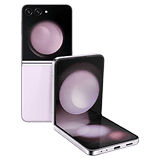



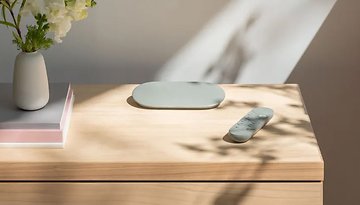







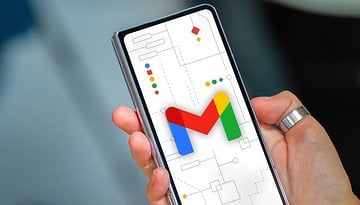
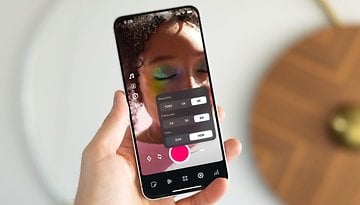


Not one bit interested in AI. At 80 years of age I am doing fine without it using 2 iPads, a laptop and 2 mobile phones. Don’t understand it, don’t want to learn it so it can go away for all I care. It is a full time job keeping up with all the devices I have.